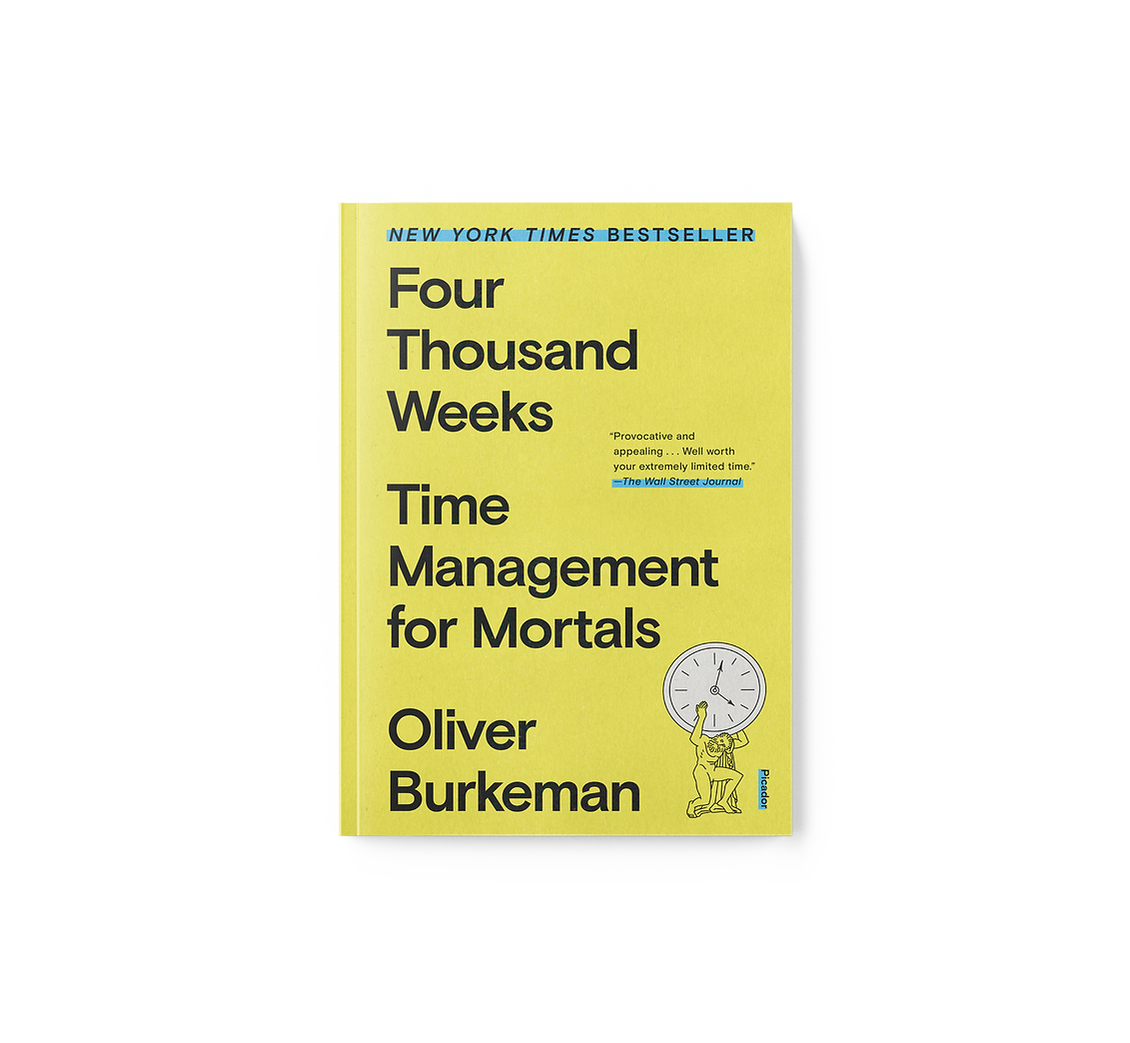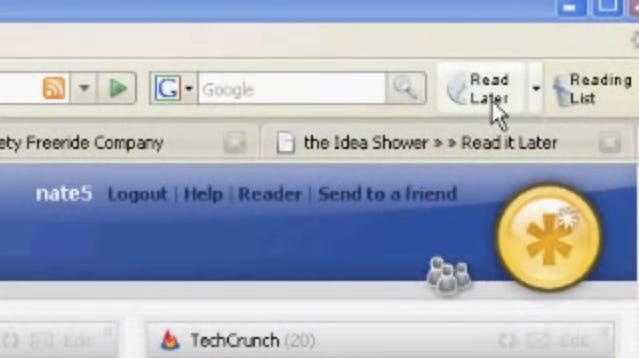Embracing life, time, and Bluesky
⏳ (And getting ready to say farewell to Pocket)

Welcome to the last weekend of June. How on earth has half of this year already gone by?
I remember one summer day when I was a kid my older sister telling me (in response to me complaining about being bored or how long summer break was or some such thing) that just wait, every year seems to go faster than the last.
She was right. Indeed it does. Oh, what I would give for three months off now.
Time
Earlier this year, I wrote about Oliver Burkeman and his provocatively titled book, Four Thousand Weeks.

I finally picked up a copy recently and have been enjoying it. Others have too.
“This is the most important book ever written about time management. Oliver Burkeman offers a searing indictment of productivity hacking and profound insights on how to make the best use of our scarcest, most precious resource. His writing will challenge you to rethink many of your beliefs about getting things done—and you’ll be wiser because of it”
If you’ve read it, I’d love to hear your thoughts. (I’m still working my way through it along with a few other books.)
Pocket
Last month, I wrote about the devastating news that Mozilla was discontinuing Pocket:
This development struck a cord with some of you and various readers shared suggestions for possible replacements in the comments. Thank you, all. Mike Sowden suggested raindrop.io and Robin Good suggested readwise, Omnivore, Instapaper and several more.
Pocket’s shutdown looms and I still haven’t settled on a replacement. Have you?
I am really going to miss the native integration on Kobo (and still hoping that Rakuten Kobo announces something in the next week or so).
Use case
The tools may change but the essential use case remains the same: How to best collect and curate the amazing things you find on the internet?
I remember being an active user of del.icio.us in the early 2000s (here’s an old page from the Internet Archive Wayback Machine). I remember being excited about a then-new service, Amplify, which later shut down and was replaced with Clipmarks, which also shut down (the URL today resolves to Salesforce.com). From there, I remember using and trying to like Diigo (and making use of its highlighting features), which to its credit still exists as a service today.
By the time Nate Weiner created Read It Later (later rebranded to Pocket) in 2007, I had tried many different tools, including the then-common emailing myself links to articles I wanted to read later or save for future reference. What Nate built suited my needs so well because he had the same issue. From an interview he gave in 2014:
What’s the story behind Pocket?
What I just described was a problem that I had. I was working at a web design firm in Minneapolis about six-and-a-half years ago and during the course of the day I was coming across stuff all the time that I wanted to save, whether it be an article or a tutorial on something or a video I want to watch, and I was just emailing myself all these links. I would never open any of them because they would clutter up my inbox.
So one night I sat down and I built a Firefox extension—I wanted to learn how to make Firefox extensions and it was the one thing I wanted to fix. I took two nights, built the Firefox extension (below), and it was just this basic place to save a list that stayed in your browser of just stuff you wanted to save for later. After you opened that thing, you could remove it, never see it again, or you could share it out to a bunch of different places. That was the basic notion.

It was initially very much just scratching your own itch, so to speak, but in terms of its growth, it was one of those things where I certainly had no idea of what the impact would have been at the time. Once it got picked up on Lifehacker and then a number of other sites, it exploded from there. It quickly became very apparent to me that there were a lot of other people that had this problem.
🙋🏻 Yup. I have been a dedicated Pocket user ever since.
Over time, Mozilla depreciated two features I liked:
being able to send something to a friend’s Pocket via share on your mobile phone
being able to recommend and share an article to your public profile (mine).
The loss of the first meant I resorted to texting links. The second caused me to start sharing more articles on LinkedIn.
Still, the core personal “save it to read later” functionality remained intact until now and that is what I’m going to miss most. Figuring out a replacement is still on my “to do” list this week. (If you have any recommendations, I welcome it.)
Bluesky
While I continue to add articles to my Pocket account daily, I have also started to embrace Bluesky recently as a possible lightweight way to share articles (the second feature Mozilla depreciated above). I created an account after Twitter became X, but hadn’t really used it much until now and am finding it may become a new part of my toolset.
If you’re on Bluesky, you can find me @brycepayne.bsky.social.
Here is a starter pack of other Substack writers on Bluesky like Andy Adams:
How about you? What is an app or tool you’ve been exploring lately?
If you’ve made it this far, thank you for reading. I know this issue may be a bit … random, different, or geeky. I’m writing from the heart — and hope that maybe something I’ve said resonates with you.
Next weekend is a holiday weekend in the US. I may take the week off from the blog. I haven’t decided but it’s likely I will.
I hope you have a wonderful day today — and a wonderful week ahead.
Be well,
-Bryce
PS: I picked a half flat of raspberries this morning: so good! Enjoy the bounty of the season wherever and whenever you can. It’s good for you. :)




4000 weeks is one of my favourite books!
Especially the concept of the finitude of time. It gives us permission to let go not "doing everything" on our to-do list.
Hey Bryce, always good to hear from you. I quite enjoyed this issue and recognized myself in the many tools I fell in love with which do not exist anymore.
My approach to managing stuff I find interesting online is quite different from most and I do have some interesting tools to suggest.
The first consideration to make is that I really do not have a time for reading later stuff I bumped into. I have a time to bump into stuff and that is also the time to read that stuff. The point is not to allow myself to wander and bump into potentially interesting stuff when I don't have time to dwell into them. So, it is either "bump into" time, in which I can read, or if it is not, and I still run
into interesting stuff, I just open a new tab with the interesting thing to read, and await the "bump into" time to read it all. No need for an extra app.
On the other hand, I do have a constant need to save aside things, articles, resources and tools which I know for sure are relevant to my work and will want to get back to, to add to collections or to review. For these, I have presently two favorite tools:
1) for creative, intellectual, spiritual and highly inspiration stuff I know no better place than Sublime.app to save, and find this material. The spirit of the person behind this app perfectly matches my explorative, inquiring, curation soul. We are definitely a 100% match.
2) for all the rest I am enjoying using Capacities.io and its many useful features and customization abilities. This is a powerful app for many knowledge management activities and it works across platforms and the web. (previous tool before adopting Capacities was Obisidian).
I should mention that Glasp.co is also a great tool for PKM, read-it-later and curation, collection. Definitely worth trying.
On the visual front, I find interesting and worth experimenting with:
Cosmos.so
Are.na
Hope you find something useful among these.